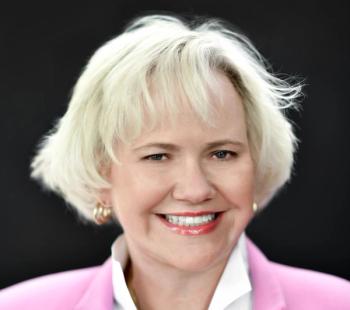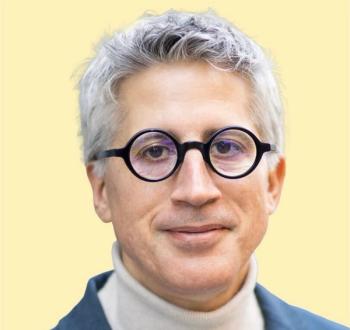
HLTH 2024: 7 key takeaways from the healthcare technology conference

Thousands of people traveled to Las Vegas for the annual event. There’s growing enthusiasm for AI, and a little fatigue over some of the hype.
The HLTH conference offered evidence of the growing excitement about artificial intelligence in healthcare, but the conversation is getting more nuanced.
That’s perhaps the key takeaway from the healthcare technology conference in Las Vegas. Thousands of healthcare leaders came for the convention, which started Sunday and ended Wednesday.
Here’s a rundown of some of my key takeaways from the HLTH conference.
I’ll offer a few caveats. There were literally hundreds of sessions, so obviously I didn’t attend each one. And with an estimated 12,000 in attendance, I didn’t talk to everyone.
I did speak with a good number of healthcare leaders in attendance (my dance card was full), some for interviews and others in casual conversations. This rundown reflects insights from the sessions I attended and those I spoke with at the conference.
You can also check out this video recap for more of the sights and scenes from HLTH. (The story continues below.)
AI excitement, with an asterisk
Ahead of HLTH,
They were not wrong.
It’s probably not surprising that AI was the dominant conversation at HLTH, and it was the topic of a host of sessions.
“The enthusiasm for the application of AI in healthcare is appropriately high,” he said.
However, there is a little fatigue, and even some frustration, over the constant AI hype. A number of healthcare leaders said there needs to be an understanding that AI is not a magic wand that is going to solve every problem in healthcare.
Others also expressed a little wariness of vendors pushing AI technologies. Some leaders said AI companies need to focus on more than using new technology, and concentrate on developing tools that help solve real issues for healthcare providers.
They also offered advice worth heeding for AI companies: Get some input from clinicians on your AI tools, since they’ll be using them. Another hint: That should include nurses as well as doctors.
Michael Meucci, CEO of Arcadia, said the conversation around AI is evolving from asking "what's possible" to helping clinicians.
"It’s clear that empowering clinicians with tools that integrate seamlessly into existing workflows—without adding burden—is key to enabling faster, better decisions at scale," Meucci said.
Executives continue to see AI offering more immediate benefits in helping streamline administrative tasks and helping to ease burdens on their staff.
While some leaders say AI could help expand access to healthcare, others warned that it could exacerbate disparities.
“I’m very worried health systems are using AI honestly to segregate patients into those that are profitable and those that are not,” Califf said.
Clinician burnout
Some of the AI discussions are aimed at easing the workload of clinicians, and there is a recognition that doctors, nurses and other caregivers are spending too much time looking for data or filing claims, and that’s contributing to burnout.
Burnout among doctors and nurses is hardly a new phenomenon. The Physicians Foundation reports that
Healthcare leaders are also talking about reducing time spent on administrative tasks so that clinicians can focus more on their patients and have better conversations and can think more deeply about ways to help them. That’s a concern that was addressed repeatedly over the course of HLTH.
Restlessness
Health leaders also exhibited some restlessness over the state of healthcare.
Even as many talked about AI and other digital tools to improve care, executives noted the glaring problems that persist for many Americans.
Americans have shorter lifespans than those living in other countries, Califf noted. Too many people don’t have a primary care doctor, and too many communities don’t even have family physicians.
Too many can’t afford the care they need, and are grappling with social factors such as homelessness, food insecurity, or simply lacking a full-service grocery store.
Some of the conversations about health equity felt a bit ironic in the Venetian, the lavish site of the conference. But it’s good that there was a recognition of the reality for many Americans beyond the Vegas strip.
Mental health
Some of the best conversations involved the growing mental health crisis in America.
An excellent session at HLTH focused on
Experts on the panel warned against dismissing a child’s depression or anxiety as just a phase. They also said some people aren’t appreciating how much the COVID-19 pandemic disrupted kids and teens.
Disturbingly, the experts said too many kids simply don’t see hope for the future. Akiera Gilbert, CEO of Project HEAL, an organization that helps young people with eating disorders, warned that many kids struggle with isolation.
“We are theoretically living in an age of connection, and we have never been more alone,” Gilbert said.
Women’s health
The HLTH conference gave some welcome attention to women’s health and research.
She also urged healthcare leaders to put more attention on women’s issues.
“I know you see these opportunities in your day-to-day work,” Biden said. “Here’s what I also want you to know. The women of America are waiting on you.”
Another high-profile woman made the case for paying more attention to women’s health.
“We need more money, we need more dollars, we need more research, we need more clinical trials,” Berry said.
At least in the sessions I observed, there were a good number of women on the panels, which is also encouraging.
Giddiness over GLP-1s
Quite a few HLTH sessions focused on the popularity and potential benefits of anti-obesity medications, or GLP-1 drugs. The demand for those drugs has surged, and leaders at HLTH see little signs that the consumer appetite for GLP-1 drugs is waning.
While used in treatment of diabetes and weight loss, healthcare leaders also expressed interest in more research in their use to treat other conditions.
However, some derided the cost of GLP-1 drugs, which top $1,000 and are out of reach of many Americans. Califf chided drug companies for the high price tags.
“The profit margin, especially in the U.S., is outrageous,” Califf said. “They should be ashamed of themselves for what they’re charging Americans.”
Star power
Halle Berry wasn’t the only famous face at HLTH this year. Other celebrities took the stage and offered some perspectives that have some value for healthcare organizations.
Musician John Legend spoke about health equity during an appearance on the main stage Monday. In a conversation with Vanessa Broadhurst, executive vice president of global corporate affairs at Johnson & Johnson, Legend talked about seeing health disparities in his own family. He noted that his grandfather had his leg amputated due to diabetes, and talked about delays in getting the right diagnosis and treatment.
“I’ve seen how health equity and the lack thereof has impacted my own family over the years,” Legend said.
The clinicians who are working with people in the Bahamas are treating them with respect and not pity, he said.
““It just feels beautiful,” Kravitz said. “You’re giving them their health back, you’re giving them their smile back, their dignity. … they’re so thankful.”






















































































